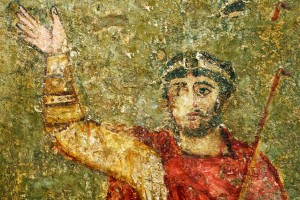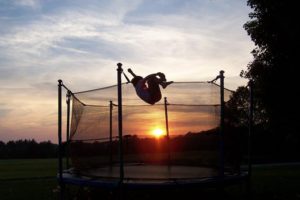I recently went to watch the musical, Wicked by Stephen Schwartz, for the first time, and found it very entertaining and thought-provoking. The songs were catchy and the classic songs of “Defying Gravity” and “For Good” were great. The cast did a great job and they played and sung their parts wonderfully. If you’re not familiar with the musical, it is based on the Wizard of Oz story, told from the perspective of the witches of Oz, as two witches – Elphaba who becomes the Wicked Witch of the West and Glinda the Good develop and become these roles they play in Oz. It’s an interesting shift of perspective, and plays on the way good and evil are perceived by people is mostly due to the way things are presented to people.
Around the time I saw Wicked, I was also reading A History of Christian Education by James Reed and Ronnie Prevost, and it was interesting seeing all of the different Christian and educational movements throughout history, and how it has influenced our current ways of viewing education. It’s interesting to see how the different historical contexts of the day influenced the way things were perceived by people and how different kinds of educational philosophy and Christian doctrine came out of specific cultural situations.
There’s also another part of history that I greatly value in realizing and understanding that we are part of a bigger story, of a community of people who have gone before us. We aren’t re-inventing the wheel, and often are just continuing and building off a legacy of believers and thinkers who have gone before us. I’m grateful for the people who have contributed to our understanding of theology and education. As Christians in seeking to fulfill the Great Commandment of making disciples, teaching people in the ways of Jesus, we need to be able to understand the different kinds of educational practices that developed throughout history and integrate them in our teaching and in the education process. We can learn from those who have gone before us, as we are part of a greater community of believers throughout history. Learning from others’ ideas is important in the educational process. Observing history also helps Christian educators see both the positive and negative consequences of different educational theories, and the outcomes that they produced in those specific eras. It is also comforting to know that we follow a long tradition of Christian education from our predecessors as we seek to pass knowledge onto our students.
Reading history books makes me think about whose perspective we are reading the book from, and it’s interesting to see which people are chosen to be named in being influential thinkers for Christian education. While I highly value Western thought and the importance of logic and reason, as emphasized by the West, I also wonder about the other perspectives that often don’t go noticed in these kinds of history books. I wonder about what was happening in the East, and other parts of the world, and the way people perceived Christianity and education. Understanding different perspectives, is important in building bridges and gaining value from different ways of thinking. I don’t want to go to the post-modernistic extreme that morality or truth is relative, but I think that there can be great value in learning from other perspectives, especially from ones that we don’t normally hear about. I wonder how our view of God and others would be impacted if we heard the other sides of the stories. I hope we continue to seek to learn and understand different perspectives from our own so that we also grow more in the knowledge and understanding, and bridge gaps between cultures as we desire to be united as one body in Christ.





Leave a Reply
Your email is safe with us.